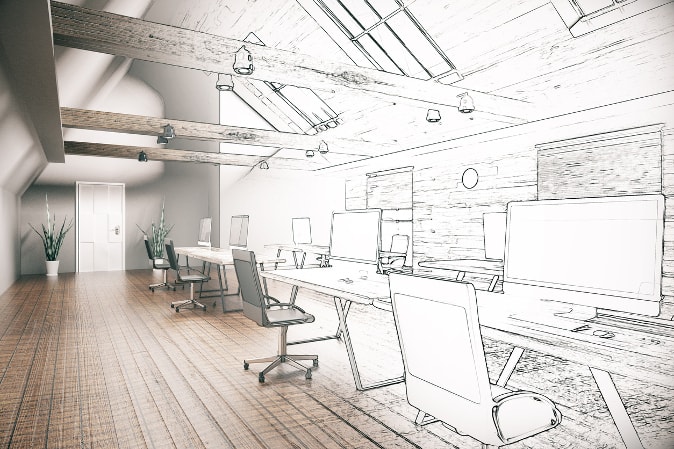
Setting up an office: quick and dirty guide
You’ve identified the ideal premises for your business… now what? Setting up an office marks an exciting period of change, but needs to be handled correctly to ensure a smooth transition, regardless of whether you’re a start-up venture or established company.
Here’s a guide detailing the key things to consider when you’re moving into your new offices.
Get the right lease agreement
There are a variety of ways to rent a commercial property; a lease of part or whole, an agreement to share space with other businesses, or a sub-lease to name just a few. When signing the contract, it’s important to ensure the terms are favourable.
For example, do you want a short-term lease (enabling you to move in the near future if required) or a more stable, longer-term lease? Does the contract feature a break clause, if you need to cut the contract short for any reason? What are you responsible for, and what is your landlord responsible for? Make sure you negotiate hard for a fair contract – as this can make or break your business.
Legal aspects
Be fully aware of any clauses that might restrict your use of the premises – for example, restrictions on hours of use, alterations to the building or redecoration. If it’s unclear in the contract, ask for clarification.
Work out costs
Before investing in branded décor, furniture or technology, create a list of what you’ll need to get up and running, with an estimate of cost. If the total comes well over-budget, you’ll be able to easily identify where you can cut back (whereas if you start spending straight away, this becomes a lot harder). Remember, buying in bulk from a particular supplier means you may be in a position to haggle for a discount.
Insurance
The vast majority of commercial properties are insured by the landlord, as it’s in their best interests to do so. However, it’s never a good idea to presume this is the case – check the lease agreement thoroughly. You’re also likely to need insurance of your own; for example, to cover business losses if the premises are damaged through fire or flood, or if you can no longer work. It goes without saying that you’ll need to arrange insurance for business equipment etc.
Layout
Before buying furniture, work out what layout is best for your business. Some companies favour an open-plan office, which enables easy communication and lots of space. However, if your team require ‘quiet time’ or privacy, a closed plan may be better – with the floor space sub-divided into separate work areas. Modular workstations offer balance between the two. Focus on making the most of the room you’ve got – The Independent recently reported that UK businesses were wasting £42 million on unused office space.
Technology
It’s important to identify what computer and phone systems will best benefit your company. Try not to be wowed with big brand names; unless they offer tangible benefits, they’re probably not worth the extra money. You’ll also need to sign up with an internet provider, and you may also choose to use an answering service or virtual assistant.



